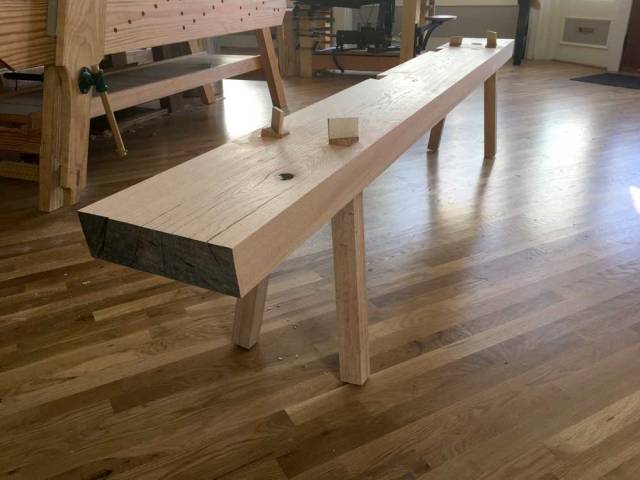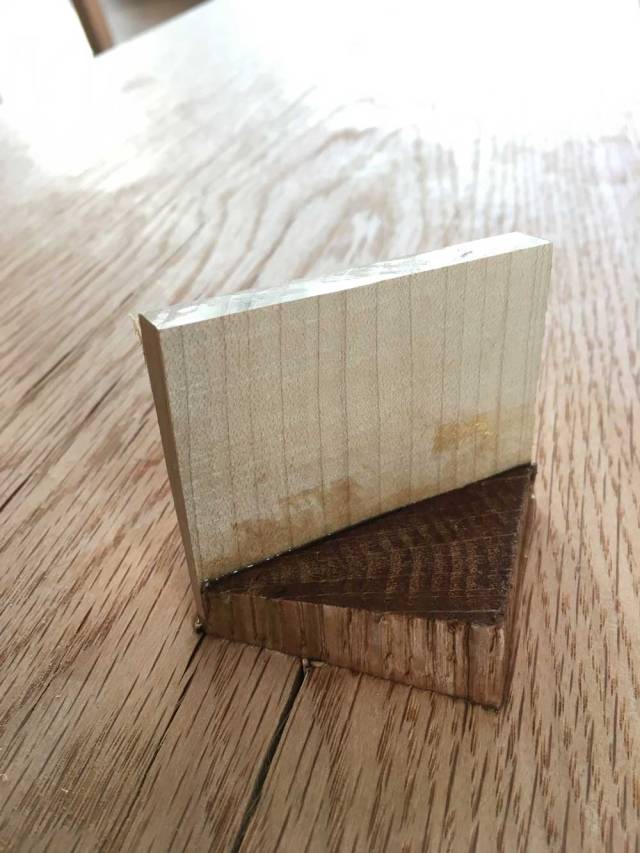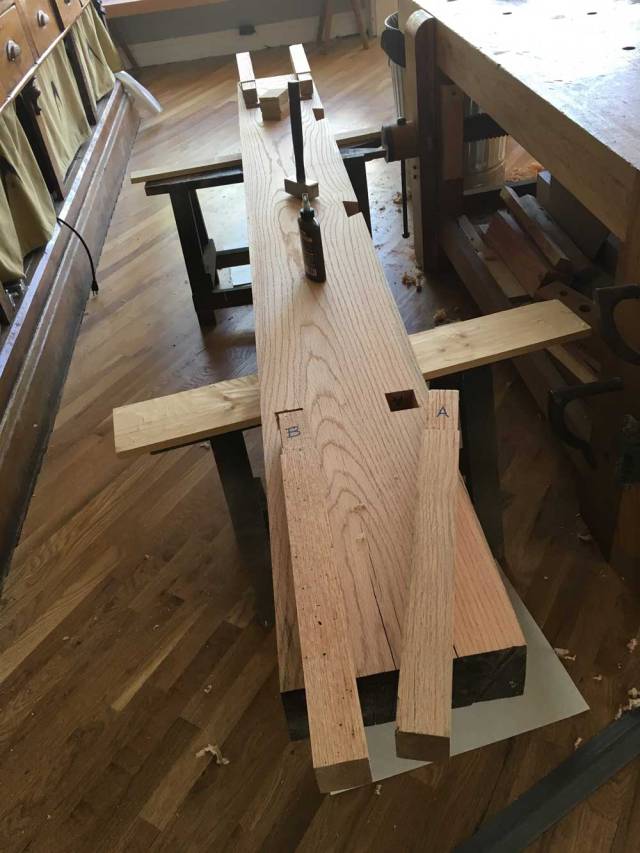
Today I glued up my recreation of the Roman workbench from the Saalburg fort and museum outside Frankfurt, Germany. The Saalburg bench is, as far as I know, the oldest surviving workbench from about 187 A.D. And as I pounded home the maple wedges, I pondered how the title of my book – “Roman Workbenches” – isn’t quite correct.
While two of the benches I’ve built for this book are definitely Roman, with a third from the Holy Roman Empire, the thrust of the book isn’t about Rome or the workbenches that came from there. It’s about the workholding on early benches.

Thanks to the paintings dug up by Suzanne Ellison and the addition of my active imagination, the book is becoming a treatise on: “Look, you don’t need a lot of complex devices on your bench to build fine furniture. You just need to be smarter than physics.”
For about 1,500 years, these forgotten workbench appliances were common on both low benches and high ones. Then we became a mechanical people. We tried to make our lives easier by inventing devices that would assist us in our work. I’m sure there’s some formal name for this idea. Until someone tells it to me, I’m going to call it “Arthur’s Law.”
(W. Brian Arthur was an economics professor at Stanford University and is now at the Santa Fe Institute. He wrote in 1993: “Complexity tends to increase as functions and modifications are added to a system to break through limitations, handle exceptional circumstances or adapt to a world itself more complex.”)

I’m not saying complexity itself is a bad thing. Some systems are complicated. But many times we attempt to overcome a problem with additional complexity when the answer might actually be simplicity.
So while the glue dries on this bench I’m going to give the title of this book some more thought. Likely I’m going to stick with “Roman Workbenches” because that’s where the historical record of these benches begins.
— Christopher Schwarz, editor, Lost Art Press
Personal site: christophermschwarz.com